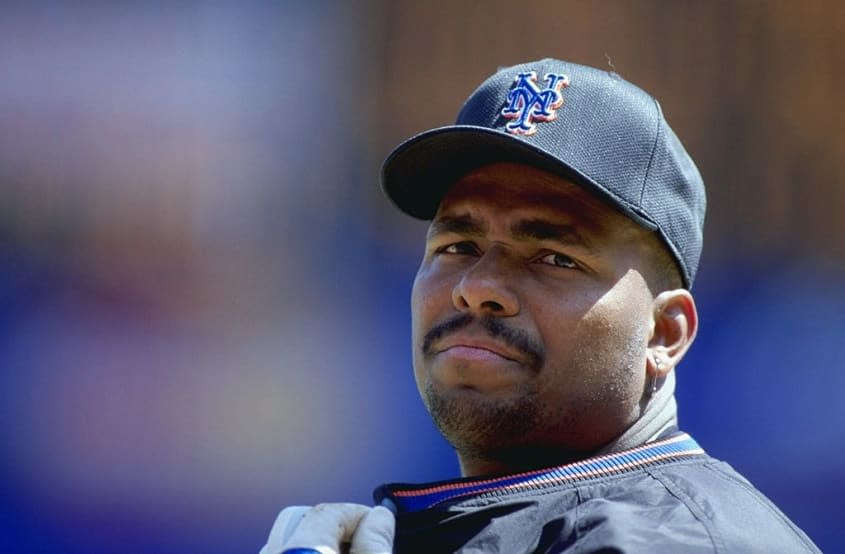Former Mets player receives annual $1.1M payout despite retiring in 2001

- Oops!Something went wrong.Please try again later.
Saturday marks a notable day for fans of the New York Mets: it's the day that the team pays slugger Bobby Bonilla his annual $1.19 million paycheck.
There's a catch, though — Bonilla retired from Major League Baseball in 2001, and last played for the Mets in 1999.
Despite this, the team has been giving Bonilla a yearly salary every July 1 for more than a decade. The payouts began for Bonilla, now 60, in 2011 and will continue through 2035, when he will be 72. The deal that provides Bonilla with these checks is often cited as one of the worst — if not the worst — sports contracts in history.
The crux of the deal began in January 2000, when the Mets released Bonilla but were still on the line for his $5.9 million salary that season. The Mets' owners had invested significant funds with convicted con artist Bernie Madoff, and believed they were set to make a large profit from these moves. As a result, instead of paying out the remaining $5.9 million, "Mets ownership instead agreed to defer Bonilla's salary with 8% interest, and spread the payments across 25 years from 2011 to 2035," CBS News reported.
However, when Madoffs' $64.8 billion Ponzi scheme was uncovered in 2008, the $5.9 million ballooned to a total of $29.8 million in back payments beginning in 2011. Dividing this by the 25 years from 2011 to 2035 equals the $1.19 annual payment.
"I really think about [Bonilla] on Father's Day, because it's the father of all deferred contracts.'' Bonilla's former agent Dennis Gilbert told USA Today.
While this situation is probably the most unusual, there have been other cases of deferred payouts in baseball. Manny Ramirez, who retired in 2011, "Will collect $24.2 million total from the Red Sox through 2026," ESPN noted.
You may also like
Former Mets player receives annual $1.1M payout despite retiring in 2001

